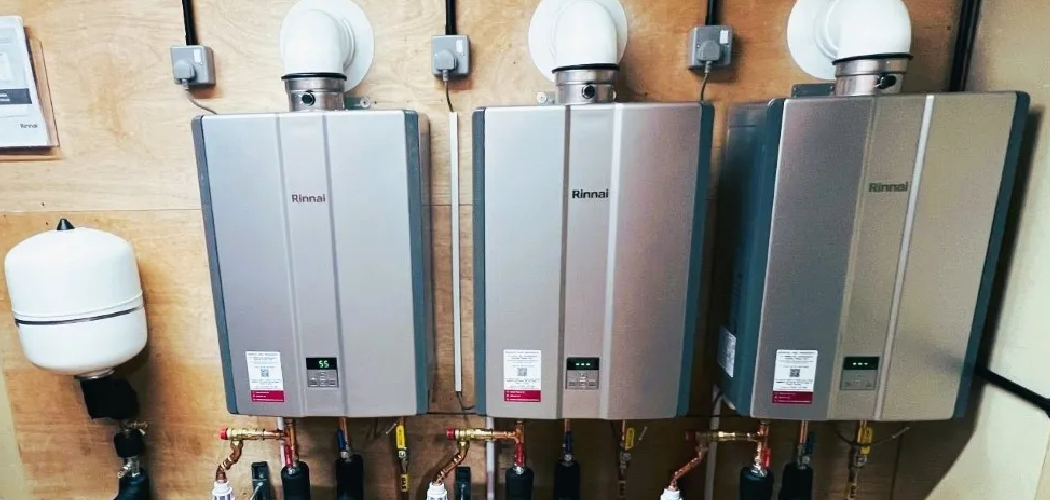Do you need to replace your water heater? It’s essential to know the signs that indicate it’s time for a new one. Ignoring these signs could lead to potential hazards and inconveniences in your daily routine. Here are some tips on how to know if you need a new water heater.
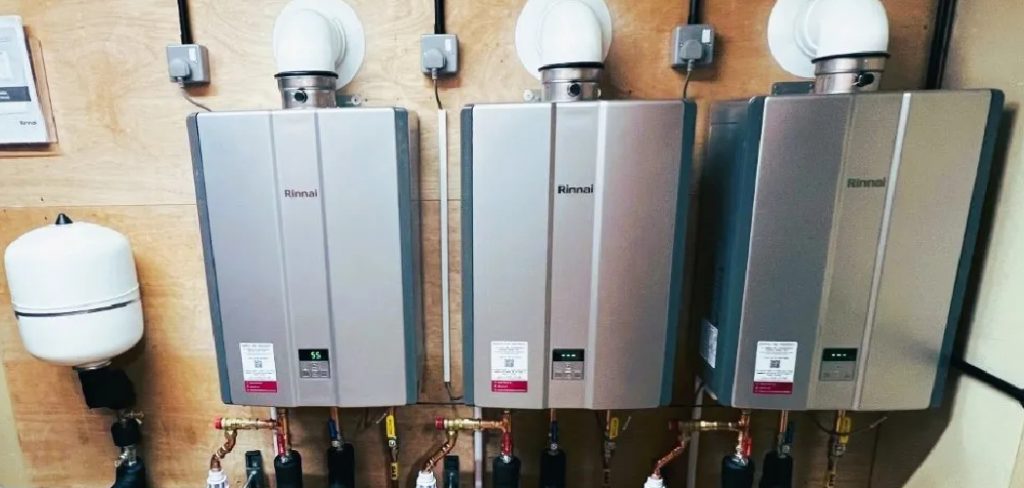
A reliable water heater is essential for ensuring the comfort and functionality of your home. Over time, however, water heaters can wear out and become less efficient, leading to unexpected cold showers, increased energy bills, or even water damage. This guide will help you identify the signs that indicate it’s time to replace your water heater.
By understanding these key indicators, you can make informed decisions and prevent potential inconveniences, ensuring your home remains a haven of warmth and comfort.
What Will You Need?
Before you begin to assess the condition of your water heater, make sure you have the following items on hand:
- Flashlight
- Screwdriver
- Multimeter (optional)
- Garden hose (optional)
Once you have these tools, you can check for the signs indicating your water heater needs replacing.
10 Easy Steps on How to Know if You Need a New Water Heater
Step 1. Check the Age of Your Water Heater
The age of your water heater is a crucial factor in determining whether it needs to be replaced. Most water heaters have a lifespan of about 10 to 15 years, depending on their type and maintenance. To find out the age, look for the serial number on the manufacturer’s label, usually located on the side of the unit.
The first few digits typically indicate the year of manufacture. If your water heater is approaching or exceeding this age range, it’s wise to consider replacement options. An older unit is less efficient and more likely to fail, leading to unexpected breakdowns and costly repairs.
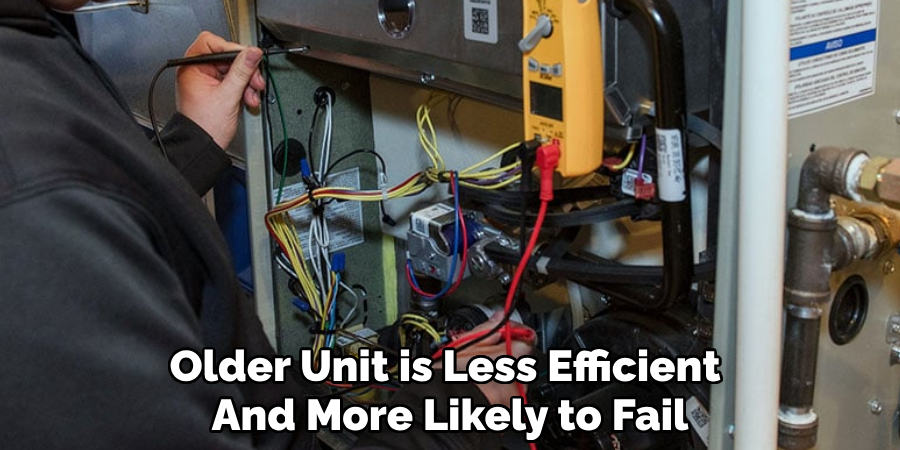
Recognizing this timeline can help you proactively decide when to invest in a new water heater, ensuring consistent hot water supply and reduced energy expenses.
Step 2. Look for Leaks or Signs of Water Damage
Inspect your water heater and the surrounding area for any signs of leaks or water damage. This includes puddles of water, damp spots, or corrosion on the unit itself. Even small leaks can indicate a significant problem that, if left unchecked, could lead to more severe water damage in your home.
Pay particular attention to the connections and the base of the tank, as these are common areas for leaks to develop. If you notice any signs of leaking, it’s essential to address the issue promptly, as a leaking water heater may need replacement to prevent further damage and ensure the safety of your property.
Step 3. Listen for Unusual Noises
Pay attention to any unusual noises from your water heater, such as banging, popping, or hissing sounds. These noises can indicate sediment buildup at the bottom of the tank, which can reduce the efficiency of your water heater and lead to overheating.
While some noises are normal during operation, persistent or loud sounds may suggest your unit is struggling and could be on the verge of failure. If you hear any concerning noises, it might be time to consult a professional or consider replacing your water heater before a complete breakdown occurs.
Step 4. Check the Temperature and Pressure Valve
The temperature and pressure relief valve (T&P valve) is a critical safety feature of your water heater. To examine this valve, locate it on the side or top of the tank and lift the lever to release some water. If it doesn’t discharge water, or if you notice rust or corrosion around the valve, this could indicate that the valve is malfunctioning.
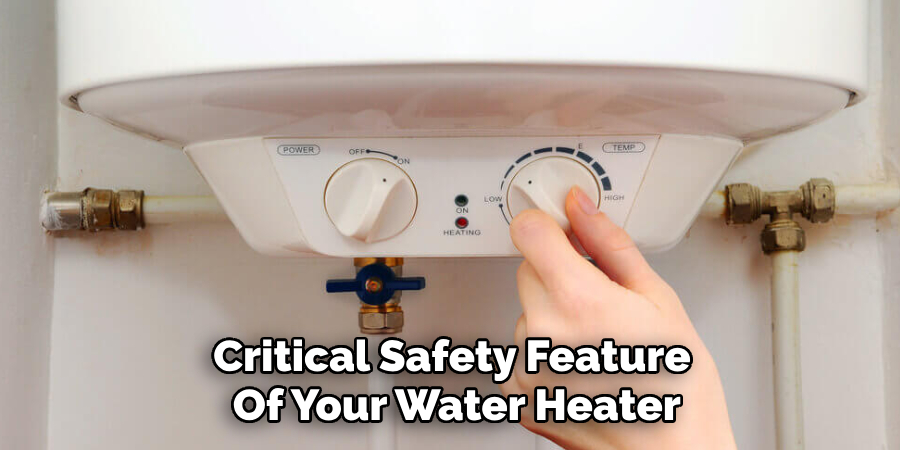
A faulty T&P valve can lead to excessive pressure buildup within the tank, posing a significant risk of bursting. If the valve is problematic or you observe any leaks from it, you should consider replacing either the valve or the entire water heater to ensure safety and efficient operation.
Step 5. Monitor Water Quality
The quality of hot water coming from your taps can be a telling sign of a failing water heater. Notice changes such as rust-colored water, an unusual metallic taste, or a foul odor. These may be indicators of corrosion within the tank or sediment buildup affecting water quality.
Rusty or discolored water can be unappealing and indicate that the tank is deteriorating and may require replacement. Regularly monitor the quality of your hot water; if concerns arise, it’s advisable to have your system evaluated by a professional to determine whether a new water heater is necessary for safety and comfort.
Step 6. Evaluate Energy Efficiency
Assess the energy efficiency of your water heater by checking your energy bills. If you notice a sudden increase in costs without a significant change in your hot water usage, it may indicate that your water heater is no longer operating efficiently.
Older models are often less energy-efficient than newer ones and designed to use energy more effectively. Consider looking for your unit’s Energy Factor (EF) rating; if the rating is low or the heater no longer has an EF rating, it may be time for a replacement. Upgrading to a more energy-efficient model can lead to significant savings over time, improving your budget and the environment.
Step 7. Check for Rust on the Tank
Examine the exterior of your water heater for any signs of rust or corrosion. Spotting rust can signal that the tank is deteriorating, potentially compromising its integrity and leading to leaks. Pay close attention to the tank, fittings, and any exposed areas where rust may form.
If you observe significant rust patches or flaking paint, it’s a strong indication that your water heater is reaching the end of its lifespan. In such cases, replacing the unit may be more prudent than risking a sudden failure and the associated damage it could cause to your home.
Step 8. Assess the Hot Water Supply
Evaluate the performance of your hot water supply. Notice fluctuations in temperature, such as inconsistent hot water or running out of hot water more quickly than usual. It may be a sign that your water heater is struggling.
More hot water can disrupt daily activities like bathing and cooking, indicating that the unit may need to be heated more effectively. If these issues persist, consider a replacement, particularly if the water heater is nearing the end of its expected lifespan. Prioritizing a dependable hot water supply will enhance your comfort and convenience at home.
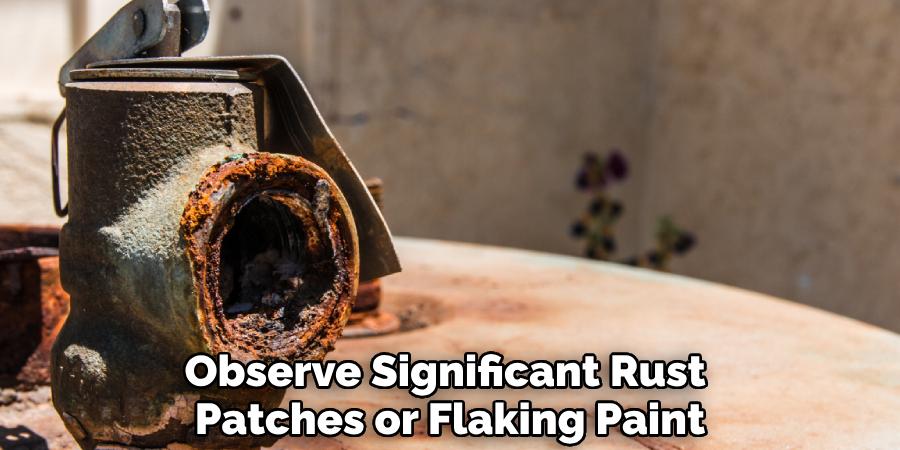
Step 9. Review Maintenance History
Take a moment to reflect on the maintenance history of your water heater. Regular maintenance, such as flushing the tank, checking the anode rod, and inspecting connections, is crucial to prolonging the life of your unit.
If the heater has not been adequately maintained or if you have a record of frequent repairs, it may be more cost-effective to replace the unit rather than continue investing in an aging system. Keeping a record of maintenance can help you gauge the overall health and reliability of your water heater, guiding your decision on whether to repair or replace it.
Step 10. Consult a Professional
When in doubt about the condition of your water heater, it’s always wise to consult a professional. A qualified technician can assess the unit’s performance, identify potential issues that may not be visible to the untrained eye, and provide expert recommendations on whether to repair or replace your water heater. Regular inspections can catch problems early and ensure that your water heater operates safely and efficiently.
By following these steps, you can proactively monitor and evaluate your water heater for signs of aging or potential failure. Regular maintenance and timely replacements can save you time and money in the long run while ensuring that your hot water supply remains reliable and comfortable.
5 Reasons to Replace Your Water Heater Before It’s Too Late
Here are five reasons why proactive replacement of your water heater is beneficial:
- Safety: Old or malfunctioning water heaters can pose a significant safety risk. They may leak, burst, or even cause fires due to electrical or gas malfunctions. By regularly monitoring and evaluating the condition of your water heater, you can identify potential issues early and take appropriate action.
- Energy Efficiency: Older water heaters tend to be less energy-efficient compared to newer models. Upgrading to a more efficient unit can save on your energy bills and reduce your carbon footprint.
- Cost Savings: Replacing a water heater may require an upfront investment, but it can ultimately save you money in the long run. Frequent repairs and maintenance of an aging system can increase over time, making proactive replacement a cost-effective solution.
- Water Quality: An old or failing water heater can negatively impact the quality of hot water coming from your taps, causing rust-colored water, metallic tastes, or foul odors. Replacing your unit before these issues escalate ensures that your hot water supply remains safe and pleasant.
- Peace of Mind: A new and reliable water heater can give you peace of mind, knowing that your hot water supply is dependable and safe. Replacing your unit before it breaks down unexpectedly can save you from the inconvenience and stress of suddenly being without hot water.
So don’t wait until it’s too late to replace your water heater – take proactive steps to monitor, evaluate, and replace your unit when necessary.
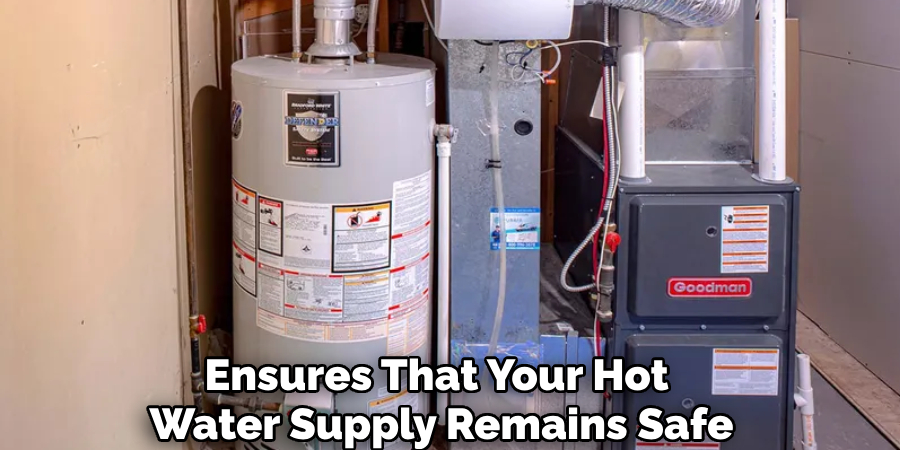
Conclusion
In summary, how to know if you need a new water heater is vital for maintaining a comfortable and safe living environment.
By paying attention to signs such as rising energy costs, visible rust, inadequate hot water supply, and a lack of maintenance, you can make informed decisions about your unit’s condition.
Consulting with a professional can provide insight and assurance regarding your water heater’s performance. Ultimately, timely replacement not only enhances energy efficiency and water quality but also ensures your household’s peace of mind and safety.
Proactively managing your water heater’s health will ensure a more reliable hot water supply and prevent potential inconveniences in the future.

